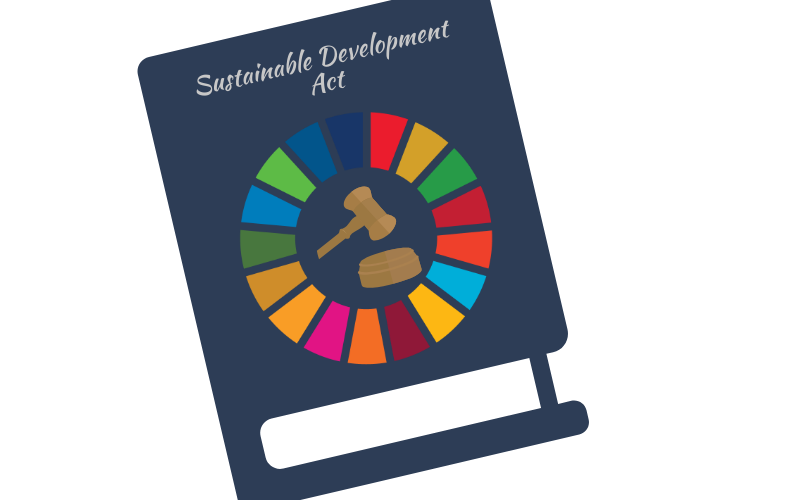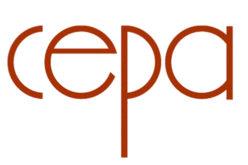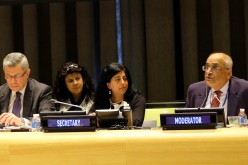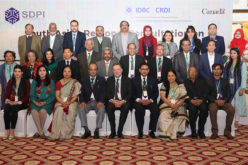by Dr Ganga Tilakaratna & Chinthani Sooriyamudali, Institute of Policy Studies of Sri Lanka (IPS)
Improving institutional coherence is key to delivering the Sustainable Development Goals (SDGs). Sri Lanka’s Sustainable Development Act came into effect in October 2017. It represents an important step towards implementing the SDGs in the country. This blog looks at the challenges and opportunities that lie ahead for the Act and gives recommendations on how to make its implementation more efficient.
The SDGs are vastly ambitious. The inter-linkages among the 17 SDGs and the cross-cutting themes embedded in its framework have resulted in a complex global agenda for development. As such, achieving the SDGs requires a coordinated action across policy areas. All government institutions need to act in collaboration.
This is of particular significance to Sri Lanka, where the government’s institutional mechanism consists of a large number of public sector organizations – around 800. This includes several ministries, departments, local authorities and other public entities. This well-entrenched governance system consists of three layers of institutions:
- national government institutions;
- provincial government institutions;
- local government bodies.
Regional branches of line agencies and a system of district administration represent the national government at the local level. Locally elected representatives govern the provincial and local government. All these institutions must act collaboratively to achieve the SDGs in Sri Lanka.
However, institutional fragmentation can be identified as a major challenge in terms of implementing SDGs in Sri Lanka. Government institutions have become accustomed to operating in silos, concerned with, to a large extent, their specific subject areas. Improving institutional coherence is important, so that public organizations can take collaborative measures across cross-cutting themes.
Coordination at the national level
As a step towards improving the institutional coherence in implementing the SDGs, in October 2017 Sri Lanka enacted the Sustainable Development Act No. 19 of 2017. The Act provides for the establishment of a Sustainable Development Council as the national coordinating body for implementing the SDGs. The Council is tasked with preparing the National Policy and Strategy for Sustainable Development. This strategy sets a legally sanctioned framework for the implementation of the SDGs. It provides guidance on all matters related to the SDGs in Sri Lanka. All government entities are required to prepare Sustainable Development Strategies in line with the national strategy. The Council monitors the implementation of the national strategy.
As an additional measure, the Council is also in charge of issuing guidelines on sustainable development for new development projects. The Act compels all public entities to carry out environmental and social audits for new development projects. These entities are further required to report to the Council on the progress of implementing their individual development strategies.
The Act has thus established a clear policy framework for a shared national vision on sustainable development. It provides the legal framework for implementing SDGs in Sri Lanka, employing the existing institutional mechanism. It further contributes to adapting national institutions to implement the SDGs.
Challenges ahead
It is evident that the Act is a pivotal step in Sri Lanka’s journey towards achieving the SDGs. The Council established by the Act has a definitive role to play in guiding this journey. However, much depends on the successful operationalization of the Act. This raises the question of whether Sri Lanka has the capacity to fully attain the vision embedded in the Act.
The nature of the authority vested in the Council in terms of ensuring the adherence to sustainable development of all public organizations is by no means a simple feat. For example, the Council’s authority over hitherto largely independent government bodies, like Provincial Councils, could cause friction. As a new entity, the Council’s capacity will need to be rapidly developed. This includes capacities related to policy-making, monitoring and supervision, as well as effective stakeholder engagement.
It is also important to build the capacities of all government bodies. They too, are required to formulate and implement institutional sustainable development strategies.
Furthermore, we cannot rely solely on the Act to ensure institutional coherence. The reclusive, solitary tendencies of government bodies need to be overcome. This is in the interest of creating an environment where everyone works together and in synergy. Only then can the government’s institutional mechanism effectively and efficiently implement the SDGs in Sri Lanka.
Despite these challenges, the Sustainable Development Act highlights Sri Lanka’s commitment to achieving the SDGs. It sets the legal framework for implementing the SDGs in the country. Its role in terms of ensuring institutional as well as policy coherence will be key in Sri Lanka attaining the vision prescribed by the 2030 Agenda.
——————————————————————————————————————
Contact Authors:
Ganga Tilakaratna – Research Fellow & Head of Poverty and Social Welfare Policy Research at the Institute of Policy Studies of Sri Lanka (IPS), ganga@ips.lk
Chinthani Sooriyamudali – Research Officer at the Institute of Policy Studies of Sri Lanka (IPS), chinthani@ips.lk;
2,889 total views, 4 views today








